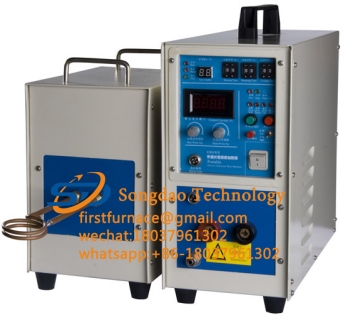- 14
- Nov
How to choose high frequency quenching equipment?
How to choose high frequency quenching equipment?
How to choose high-frequency quenching equipment, should master the following elements
1. Workpiece shape and size
For large workpieces, bars, and solid materials, use induction heating equipment with relatively high power and low frequency; for small workpieces, tubes, plates, gears, etc., use induction heating equipment with relatively low power and high frequency.
2. The depth and area of the workpiece required to be heated
The heating depth is deep, the area is large, and the whole heating should be high-power, low-frequency induction heating equipment; the heating depth is shallow, the area is small, and partial heating, relatively low-power, high-frequency induction heating equipment should be selected.
3. The heating rate required for the workpiece
The heating speed required is fast, and induction heating equipment with relatively large power and relatively high frequency should be selected.
4. Continuous task time of equipment
It takes a long time to continue the task, and relatively select induction heating equipment with a slightly larger power.
5. Wiring interval between sensing components and equipment
The connection is long, and even water-cooled cables are required for connection, so relatively high-power induction heating equipment should be used.
6. Workpiece process requirements
For quenching, welding and other processes, the power of the quenching machine can be selected relatively small, and the frequency should be higher; for annealing and tempering processes, the power of the quenching machine should be higher and the frequency should be lower; red punching, hot forging, smelting, etc., require thorough For a process with good thermal results, the power of the quenching machine tool should be larger and the frequency should be lower.
7) Workpiece information
In the metal materials, the higher the melting point is, the higher the relative power, the lower the lower the melting point; the lower the resistivity, the higher the power, and the higher the resistivity, the lower the power.

